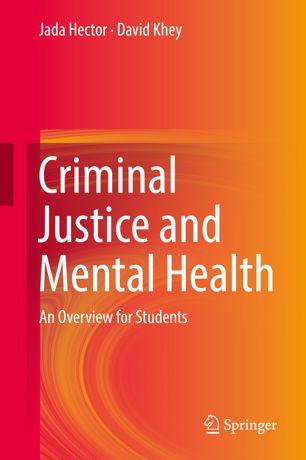

Most ebook files are in PDF format, so you can easily read them using various software such as Foxit Reader or directly on the Google Chrome browser.
Some ebook files are released by publishers in other formats such as .awz, .mobi, .epub, .fb2, etc. You may need to install specific software to read these formats on mobile/PC, such as Calibre.
Please read the tutorial at this link: https://ebookbell.com/faq
We offer FREE conversion to the popular formats you request; however, this may take some time. Therefore, right after payment, please email us, and we will try to provide the service as quickly as possible.
For some exceptional file formats or broken links (if any), please refrain from opening any disputes. Instead, email us first, and we will try to assist within a maximum of 6 hours.
EbookBell Team

4.3
78 reviewsThis textbook provides an overview for students in Criminology and Criminal Justice about the overlap between the criminal justice system and mental health. It provides an accessible overview of basic signs and symptoms of major mental illnesses and size of scope of justice-involved individuals with mental illness.
In the United States, the criminal justice system is often the first public service to be in contact with individuals suffering from mental illness or in mental distress. Those with untreated mental illnesses are often at higher risk for committing criminal acts, yet research on this population continues to shed light on common myths – such a prevailing assumption that those with mental illness tend to commit more violent crimes. Law enforcement agents may be called in as first responders for cases of mental distress; and due to a lack of mental health facilities, resources, and pervasive misconceptions about this population, those with mental illness often end up in the corrections system.
In this environment, students in Criminology and Criminal Justice are likely to encounter those with mental illness in their future career paths, and need to be prepared for this reality. This timely work covers the roles of each part of the criminal justice system interacting with mentally ill individuals, from law enforcement and first responders, social services, public health services, sentencing and corrections, to release and re-entry. It also covers the crucial topic of mental health for criminal justice professionals, who suffer from high rates of job stress, PTSD, and other mental health issues. The final section of the book includes suggestions for future research.
This work will be of interest to students of criminology and criminal justice with an interest in working in the professional sector, as well as those in related fields of sociology, psychology, and public health. It will also be of interest to policy-makers and practitioners already working in the field. The overall goal of this work is to inform, educate, and inspire change.